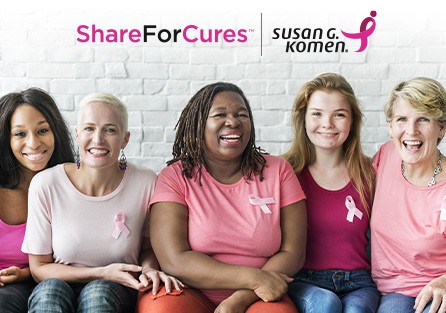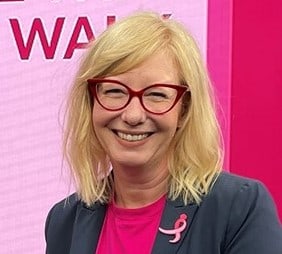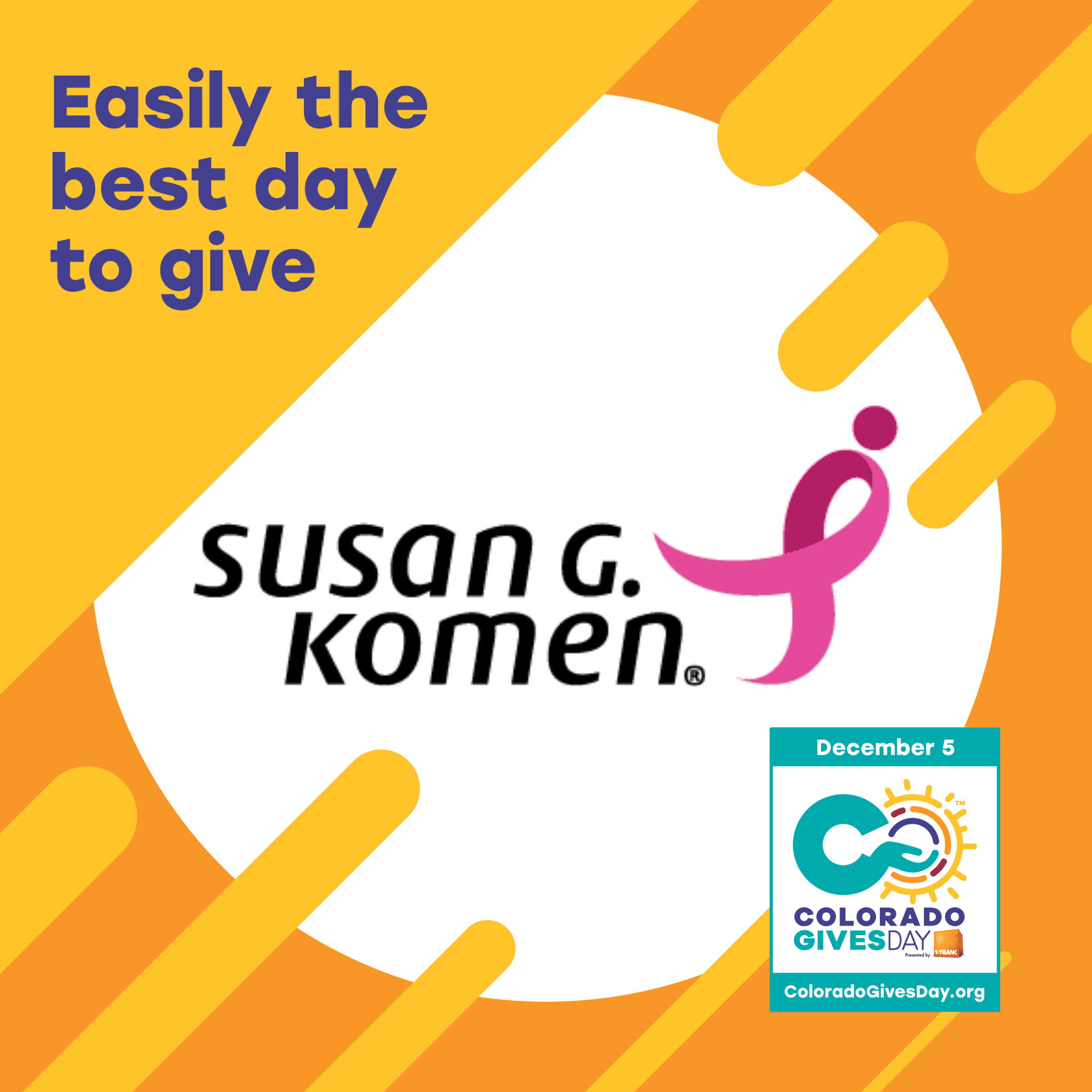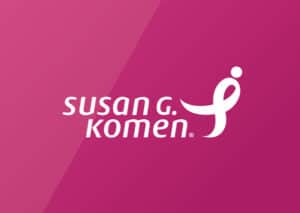Colorado
Our mission is to save lives by meeting the most critical needs of our communities and investing in breakthrough research to prevent and cure breast cancer.
Colorado
Our mission is to save lives by meeting the most critical needs of our communities and investing in breakthrough research to prevent and cure breast cancer.
Need Help?
Call our breast care helpline to assist with finding local screening and diagnostic facilities or clinical research trials, requesting financial assistance, or other questions or care needs.
Get Involved
Help us reach our vision of a world without breast cancer by getting involved in our local community.

Denver 3-Day. 3 Ways to Walk.
Registration is open for the Colorado 3- Day, and we’d love for you to join our pink bubble. We’re a dedicated community of fundraisers and advocates who each year take on an incredible challenge; a three-day and up to 60-mile journey to end breast cancer. Whether we walk 20, 40 or 60 miles — every step and every dollar raised matters.
Learn More
Get involved in 2024!
We have a variety of opportunities for individuals, groups, and companies to get involved in 2024.
Whether it is volunteering, starting a FUNraiser or sponsoring our walk we have something for everyone.
– Interested in volunteering?
Email us at colvolunteer@komen.org
– Interested in getting involved as a group?
Connect with Katie at KKilber@Komen.org
– Looking to partner with us for our 2024 Colorado Walk?
We are looking for both sponsors and in-kind partners for our 2024 Colorado Walk.

Go Pink for the Cure
We’re excited to announce Komen’s latest fundraising program: Go Pink for the Cure. This program focuses on the next generation of passionate, grassroots advocates for the cause: students!
Learn MoreLocal Events
Join the fight to end breast cancer by attending an event in Colorado!
Questions? Contact Us

ShareForCures
Your breast cancer information is as unique as you are. When combined with thousands of other ShareForCures members, you provide scientists with a more diverse set of data to make new discoveries, faster.
Latest News & Information
Nikki’s Story: I’m Not Going to Let Cancer Steal My Sparkle
Nikki Anderson’s cancer journey began with a uterine cancer diagnosis in her 30s, which was followed by a breast cancer diagnosis six years later. She celebrates her journey by fundraising for the Komen 3-Day with Team Sparkle, inspired by her own adage: “I’m not going to let cancer steal my sparkle.”
The post Nikki’s Story: I’m Not Going to Let Cancer Steal My Sparkle appeared first on Susan G. Komen®.
Statement on Passage of Critical Breast Health Legislation in Mississippi
JACKSON – Susan G. Komen®, the world’s leading breast cancer organization, today issued the following statement on the passage of two critical breast health bills in Mississippi. The first removes patient cost for diagnostic and supplemental imaging, a critical form of breast cancer screening for some high-risk individuals and an important step in determining the […]
The post Statement on Passage of Critical Breast Health Legislation in Mississippi appeared first on Susan G. Komen®.
Colorado
Contact Us
Susan G. Komen Colorado

Executive Director: Corrina Steiger
Email: csteiger@komen.org
Phone: 303-376-3077




